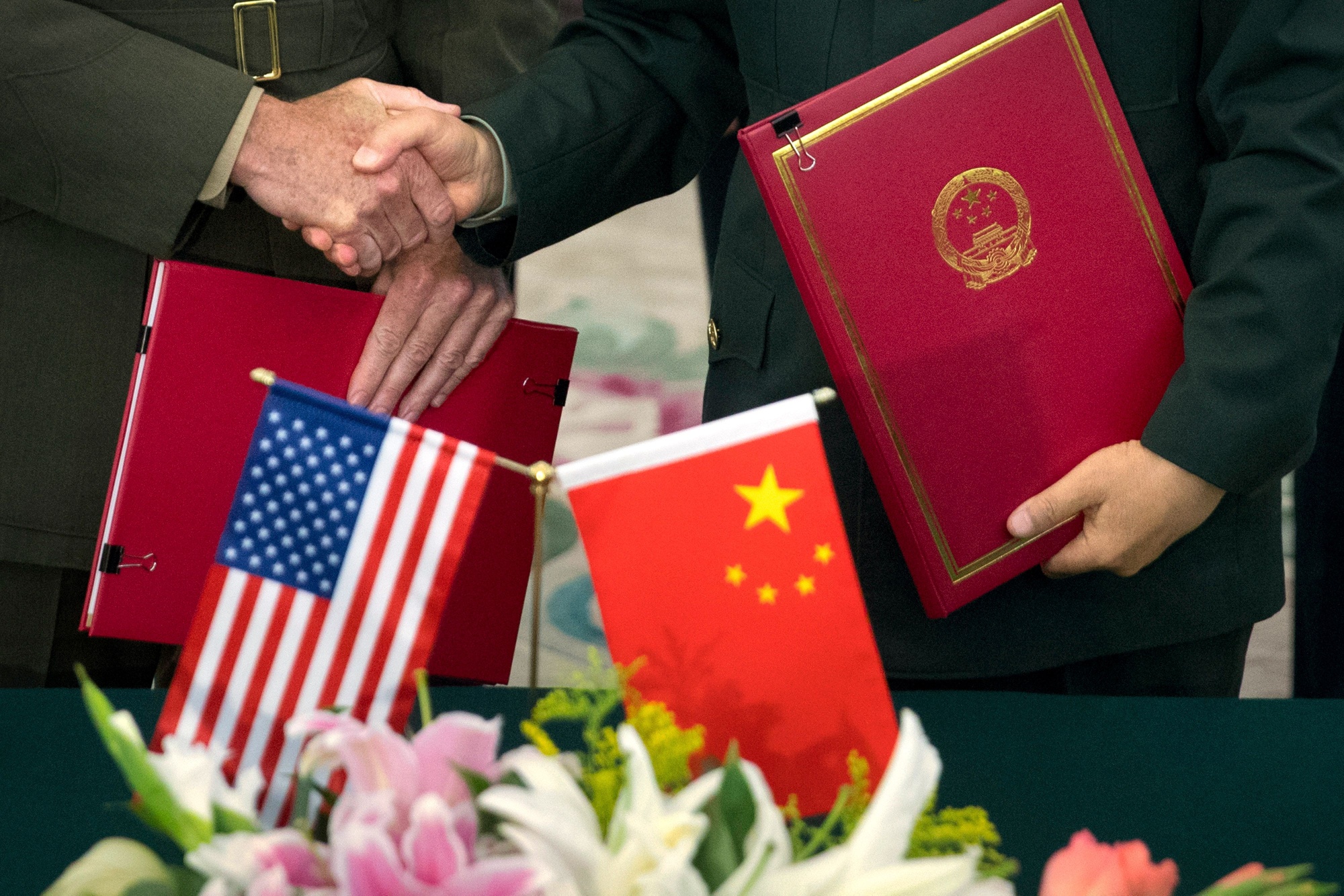Gordon Brown, a former British prime minister, spoke out loudly about the anxiety that has been gradually beginning to reverberate throughout European political halls of power at a World Trade Organisation event in September.
In response to the possibility that competition between China and the United States could result in a world with two hostile power axes, he remarked, “Europe does not want to end up squeezed between America and China, either an American colony or a Chinese colony.”
“For even though Europe would always choose America, upon whom its security depends, it also knows that its lifeblood, far more so than for the USA, is trade,” continued Brown, who, since leaving UK politics, has occupied key UN posts on international problems.
Only a few years ago, the idea of the rules and relationships holding the world economy together breaking—what is referred to as “geo-economic fragmentation”—seemed improbable. Now, it will be a hot subject at the IMF’s annual gathering of business executives in Marrakech, Morocco, the following week.
Nowhere is it more urgent than in Europe, whose prosperity has always depended on trade, from its predatory colonial history to its resurgence as a self-described champion of WTO standards.
The European Union, which consists of 27 nations, is the largest trading bloc in the world, with 16% of all imports and exports. They become very dependent on products coming from other countries as a result, including blood plasma and essential raw resources.
But as governments attempt to defeat populist competitors who have snatched up the votes of those left behind by two decades of rapid globalisation, including China’s admission into the global trading system, tariffs and other trade restraints are rising.
While emphasising that the rules of international commerce must be fairly enforced, both the United States and Europe have been tightening their positions towards Beijing. However, some observers claim that Washington is already exploring the limits of these regulations.
“Europe’s clear commitment to upholding WTO principles in a world where the other two major powers hardly do so limits its opportunities for cooperation with the United States in some ways,” A former trader named Brad Setser has provided advice to the Biden administration.
The tension in discussions on a U.S.-European “green steel” club that would erect trade obstacles to isolate China was one indication of that. The primary fear of the EU is that the American measures may violate WTO regulations by discriminating against outside parties.
When Joe Biden succeeded Donald Trump as president in 2020, most European governments heaved a sigh of relief. However, they now understand that there is no longer a U.S. consensus in favour of free trade and that they must change — ideally before a 2024 U.S. election that may send Trump back to the White House.
“(European) firms need to be prepared for extreme scenarios in which the US forces them to leave China,” cautioned a discussion paper titled “Dealing with Europe’s Economic (In-)security” that was given to EU finance ministers last month.
The EU study seen by Reuters warned the group was “badly prepared for a world of geopolitical rivalry and great power competition” that could result in such spillover consequences, even though such strong penalties on China are not now U.S. policy.
Later this week, the leaders of Europe will gather in Spain to begin formulating an economic security strategy to address the region’s weaknesses, with the aim of achieving an agreement by year’s end.
On the one hand, nations must decide which technology should be subject to stricter export regulations and investment screening, sometimes weighing national security needs against economic rewards abroad.
On the other hand, EU capitals might need to contribute fresh funding in the billions of euros to support the growth of local business in as-yet-unconfirmed strategic technologies.
They will act accordingly knowing that any actions could anger Beijing, with German exporters with a focus on China, for example, standing to lose more as a result than others.
European policy should take into account the long-standing cultural links and business interests it has with China, according to Wang Huiyao, president of the Beijing-based Centre for China and Globalisation think tank.
Of course the EU should approach China differently than the U.S. does, he asserted, suggesting that differences in philosophy and respect for human rights might be resolved.
Realpolitik may ultimately compel Europe to act.
A recent IMF analysis found that if the global economy were to split into axes focused on the U.S. and China, Europe would do best by remaining open to both, but warned that it “might face heavy costs if such a policy approach significantly raises the possibility of barriers between itself and the U.S.”
German official Petra Sigmund, a co-author of Berlin’s China strategy, acknowledged that Washington and Europe did not always share the same views on China, but she said that the Biden administration demonstrated “great willingness to sort it out.”

